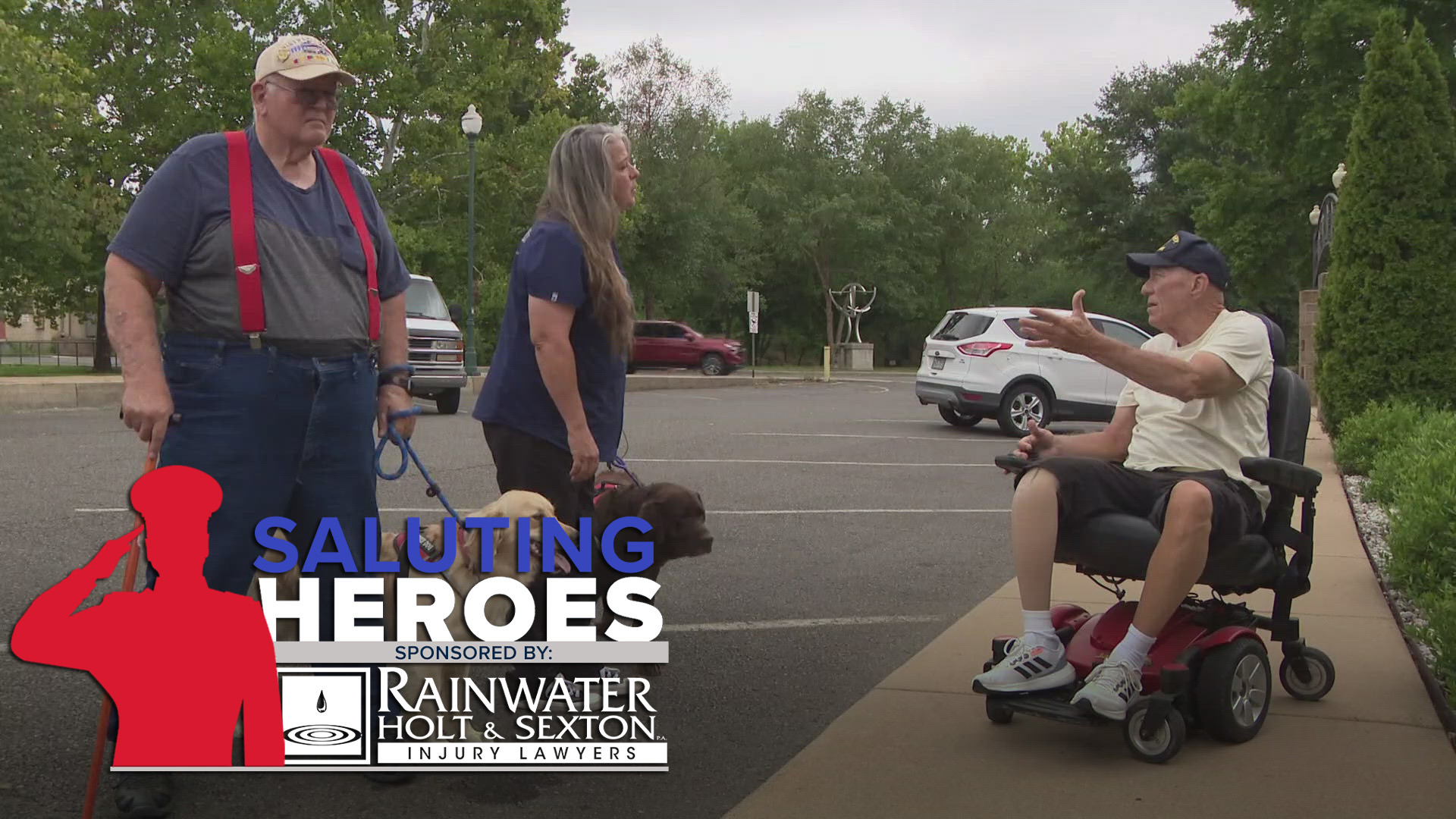HOT SPRINGS, Ark. — The phrase, "Thank you for your service," usually means a lot to veterans.
For some who are struggling, a select group is getting a chance to say, "Thank you for my service... dog."
"We have 18 generations of... dogs that were bred to be service dogs," Lifeline Service Dogs Executive Director Tina Anderson-Powe said. "We have task-trained dogs perform tasks."
Lifeline Service Dogs is a nonprofit in Polke County. Anderson-Powe said the organization's "Grow From Here" outreach effort helps raise awareness about how the organization's trainees can help veterans day to day and beyond.
"For our veterans with post-traumatic stress, there are biochemical changes in the body that occur, and there's nothing better than a dog's nose," Anderson-Powe said. The service dog will help depress and lighten pressure, interrupt abnormal behavior, and say, 'Hey, look, let's come out here.' They ground the veteran."
Anderson-Powe loves to produce intelligent animals skilled at guiding and protecting, but her organization is embarking on an effort in which those skills are just the start.
"We train dogs to come and sit and do what we call 'guard a six,' Andreson-Powe said. "If somebody's coming up, they just simply stand up, and the veteran is 'OK, alright.'"
To connect with those veterans, Anderson-Powe had to visit some dark places. Through networking with other veterans outreach associations, she's been invited into therapy sessions through the V.A. and other agencies.
"I sit in dark rooms and listen," Anderson-Powe said.
Those sessions helped her connect with U.S. Navy veteran Scott Oliver and his dog Roscoe.
"He was very skittish at first...like me," Oliver said, describing his canine companion, who has defied the odds and gone from personal pet to accredited service dog. "It's been really nice... He's allowed me to go out into public and be a little bit more secure about my well-being."
That accreditation is important because people like Oliver need something beyond emotional support animals.
"Emotional support animals have a housing allowance only under the Fair Housing Act," Anderson-Powe said. They cannot go into Walmart or get into a buggy. They're not supposed to be in places, and they don't have to have any training."
A pup named Bailey exemplifies that. The exuberant golden retriever is out in the world alongside people like Wayne Fryar, a Vietnam veteran who still feels the effects of surviving the Tet Offensive more than 50 years ago.
"I have PTSD very bad, and somebody comes up behind me, and a lot of times she will kind of look up and kind of go behind me," Fryar said.
That might not sound like much, but for Fryar, it's the difference between feeling secure enough to go out in public without fear of having a breakdown and not having one.
And Bailey is pretty good at another part of her job.
"I'll have a bad day and be down in the dumps, and Bailey will come up and jump up in my lap and lay down, kind of like a small lap dog," Fryar said.
Making these dogs provide more than just emotional support. It's enough to make us all a little emotional.
"I've done a lot of things, and there's nothing quite like helping those who've helped us," Anderson-Powe said. "I get emotional when I talk about my veterans."

